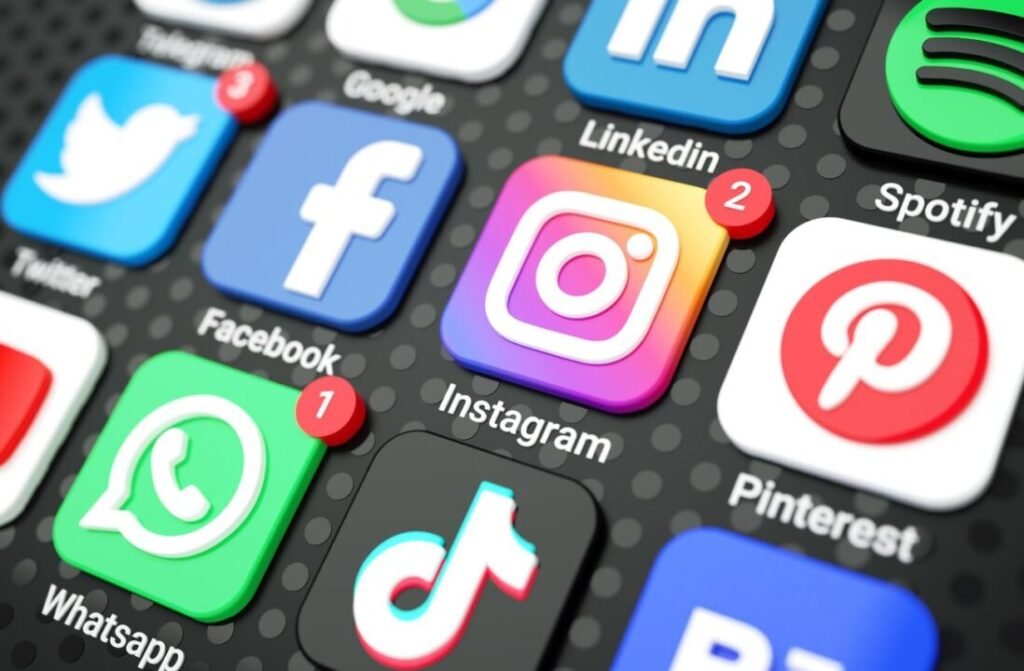Social media promises connection, but often delivers comparison. It’s a subtle, yet powerful force that can shape how we see ourselves — until we learn to break free.
The Silent Struggle
Our sense of self-worth has always been influenced by others’ opinions, but with the rise of social media, this pressure has reached unprecedented levels.
For many of us, there comes a moment — maybe more than once — when we pause and ask ourselves: “Why do I care so much about these likes, comments, and shares?”
At first, the question feels uncomfortable. But then, like a stubborn itch, it keeps resurfacing.
You begin to notice how often your mood depends on the engagement your posts receive. You realize that your confidence wavers depending on the feedback from people you barely know.
And that’s where the struggle begins. Quiet, subtle, but persistent.
The battle between who you are and who social media makes you think you should be.
Why We Turn to Social Media for Validation
It’s important to acknowledge how easy it is to fall into this cycle.
The rush of seeing notifications, the excitement when someone likes your post, or when your follower count ticks upward. These small moments feel good — there’s no denying it.
But social media platforms are built for this. They’re designed to keep you engaged, to make you want more.
The problem is that what starts as a harmless interaction can quickly turn into something far more consuming.
There’s a psychological term for this — intermittent reinforcement. It’s the idea that we’re more likely to repeat behaviors that get unpredictable rewards.
Sometimes, a post will perform well, and that dopamine hit feels great. Other times, it doesn’t, and the disappointment leaves you questioning yourself.
But you keep posting, keep sharing, because the hope for that next high is always there.
Dr. Igor Pantic’s research explains this well: social media is a double-edged sword.
While it connects us, it also isolates us, creating an endless loop of seeking approval. And when that approval doesn’t come, it can chip away at our self-esteem, leaving us more fragile than before.
The Quiet Realization
There’s a moment that comes for many of us.
It might happen on a regular evening while scrolling through your feed, or maybe after posting something you’re proud of, only to see it fall flat. The moment when you realize just how much your happiness is tied to these interactions.
For me, it wasn’t a sudden epiphany.
It was a slow, creeping understanding. I noticed how my mood would dip when a post didn’t get the attention I expected. I saw how much time I spent thinking about what to share next, how to phrase it, and which picture would get the most engagement.
And I started to wonder: why am I doing this?
That question didn’t have an easy answer. Like most things, it’s complicated. Social media gives us a platform to express ourselves, but when we rely on it to feel good about ourselves, it stops being a tool and starts being a trap.
The Cost of Seeking Validation
The real cost of relying on social media for validation is not just emotional — it’s mental.
The anxiety that comes from constantly seeking approval wears on you. It creates a pressure to curate every aspect of your life, to make every moment “Instagram-worthy” or “tweetable.”
This pressure doesn’t just affect your online life. It seeps into how you view yourself offline. You start to filter your experiences through the lens of how others will see them. You stop enjoying the moment for what it is and begin thinking about how it will be perceived.
And that’s where things become dangerous.
Social media offers a quick fix — a fleeting sense of validation — but it doesn’t give you the deep, lasting fulfillment that comes from real, meaningful connections or personal achievements.
It’s like running on a treadmill. You’re moving, but you’re not going anywhere.
Stepping Back: A Conscious Choice
Choosing to step back from this cycle is not easy. It’s tempting to stay plugged in, to keep chasing that next high of approval. But there’s something freeing about choosing to live for yourself rather than for the reactions of others.
This isn’t about quitting social media altogether. It’s about redefining your relationship with it.
The first step is recognizing the patterns — the times when you post something and immediately feel the pull to check for likes or comments. Once you start noticing, you can make a conscious effort to resist.
Post less often. Share things that matter to you, not because you want the validation, but because they’re worth sharing.

Turning off notifications is another small but powerful step. When you stop allowing every like or comment to interrupt your day, you create space for other, more fulfilling experiences.
It’s also worth reflecting on who you follow.
If you’re constantly comparing your life to influencers or friends whose lives seem perfect, consider taking a break from those accounts. Curating your feed can help reduce the pressure to measure up.
The Real Reward
Stepping away from seeking validation online allows you to reconnect with what truly matters. It gives you the freedom to experience life for yourself — not for the approval of others.
You’ll find that the things that bring you real happiness are often the simplest: time spent with loved ones, achieving personal goals, or even the quiet satisfaction of a job well done.
These are the moments that don’t need to be shared online to be valuable.
In the end, social media can be a powerful tool, but it shouldn’t define how you see yourself.
The real reward comes when you stop looking for others to validate you and start finding that validation within.
